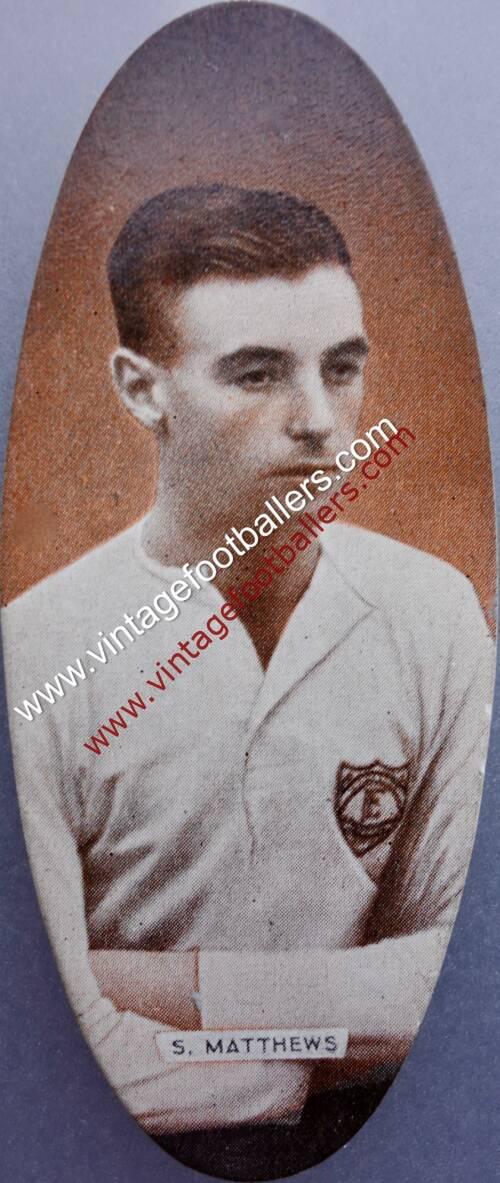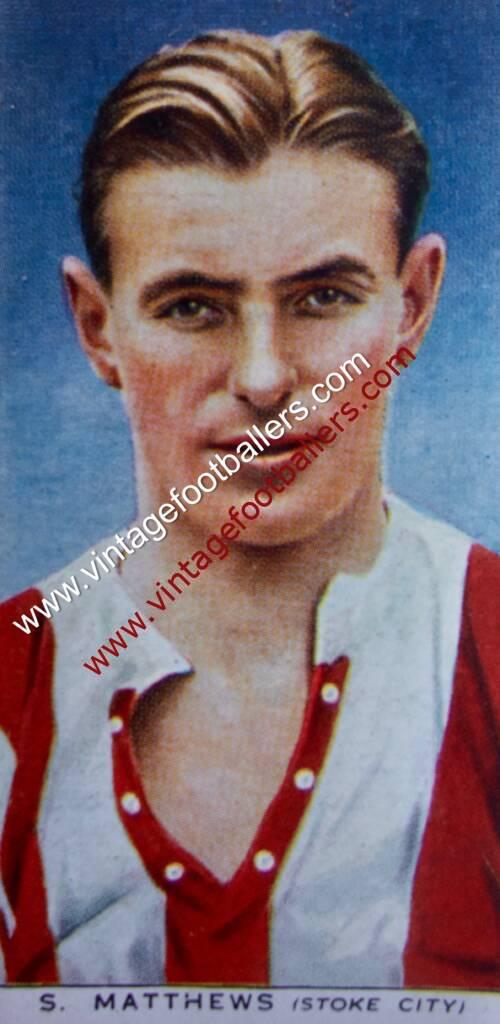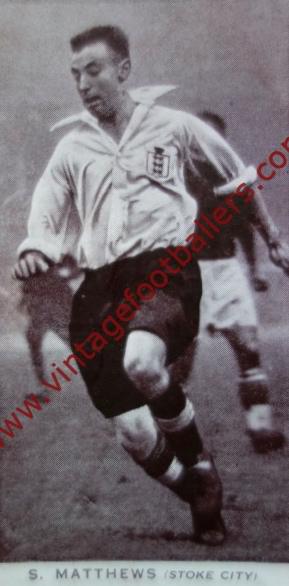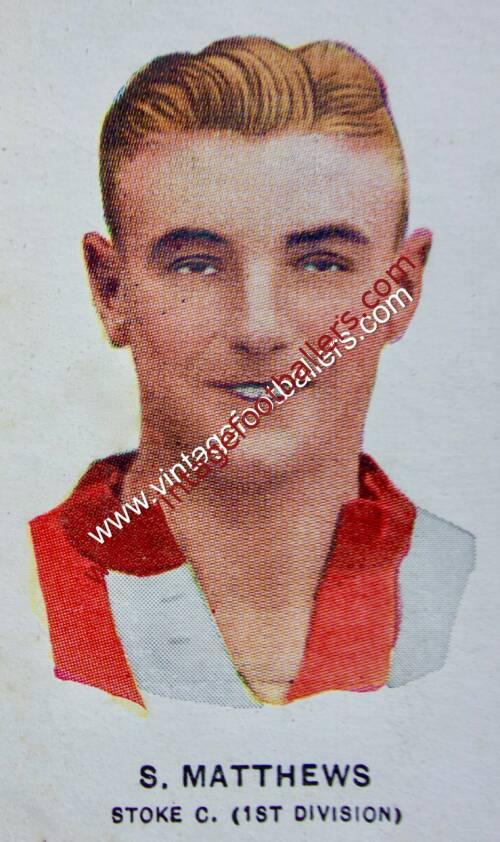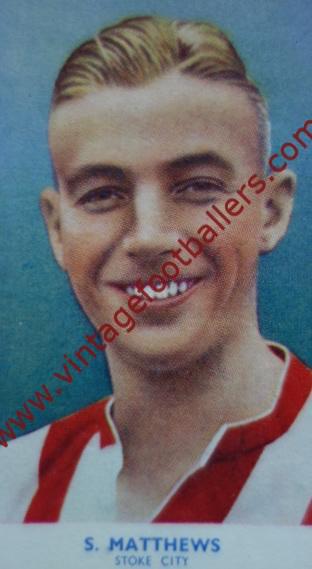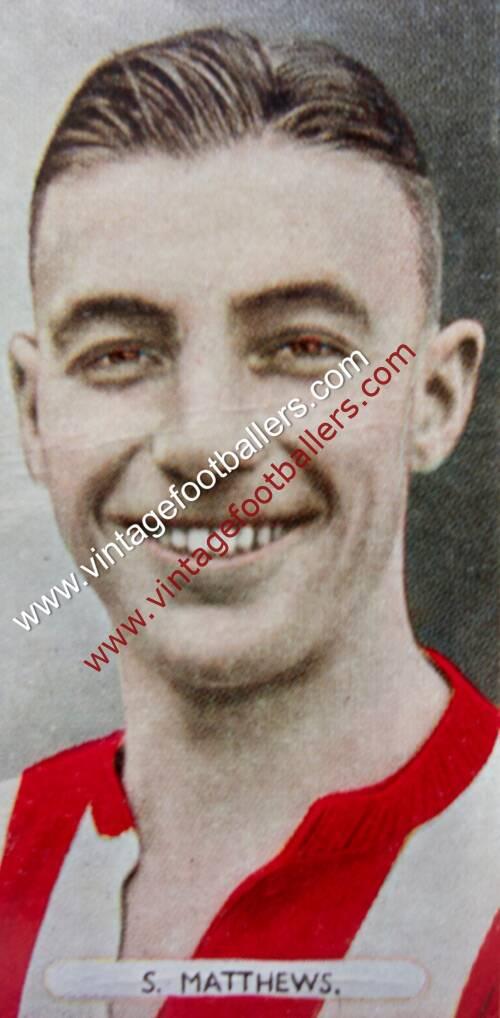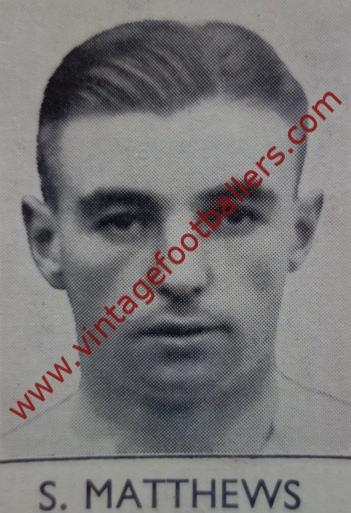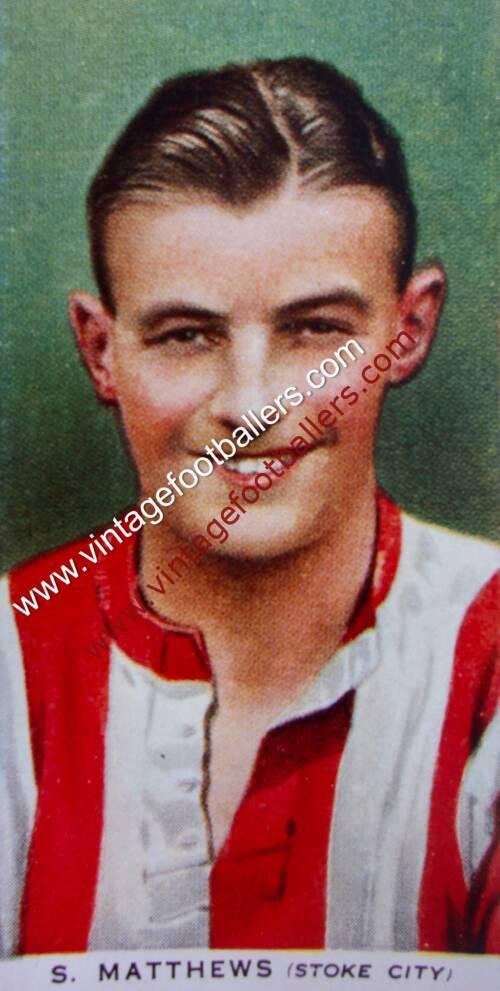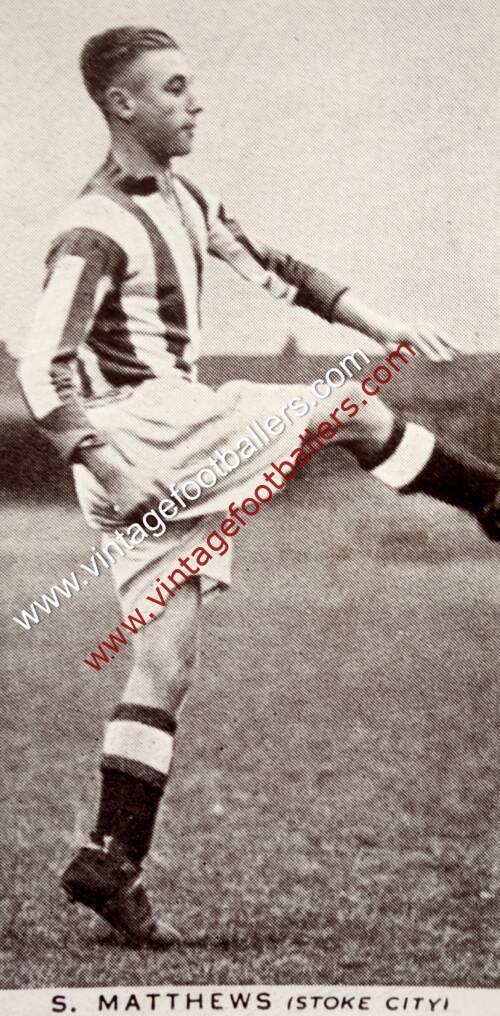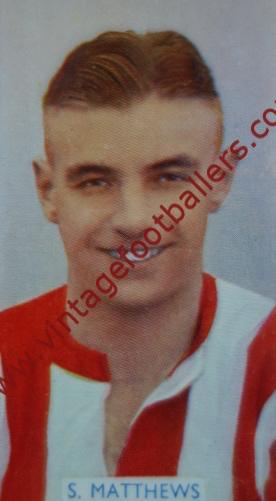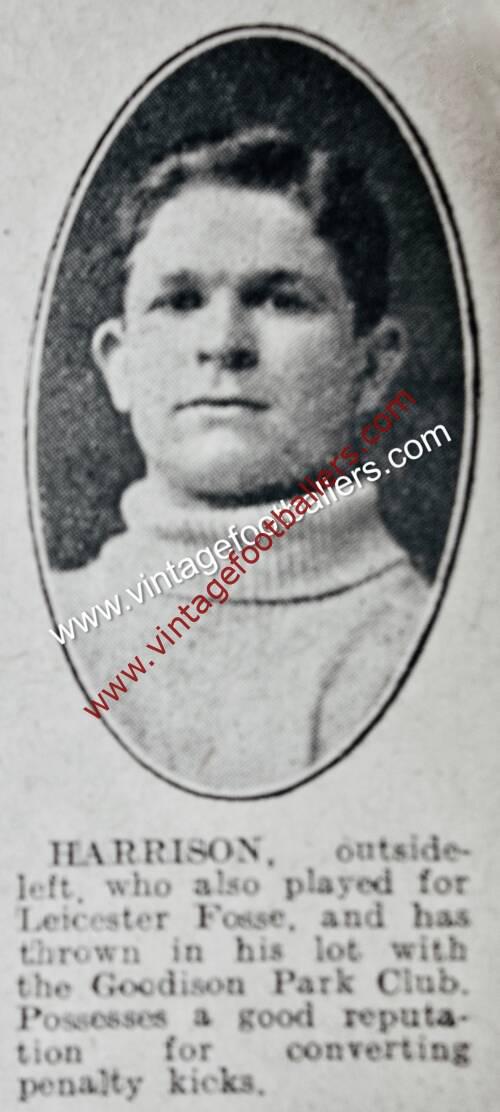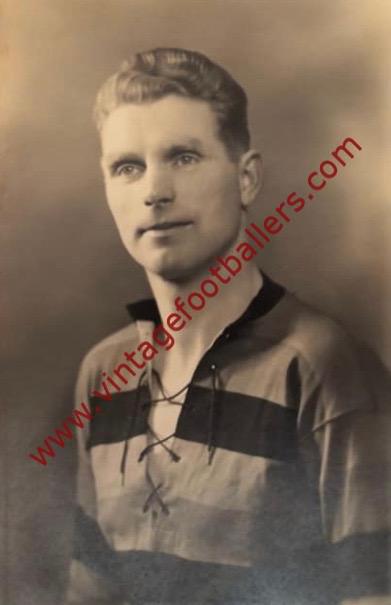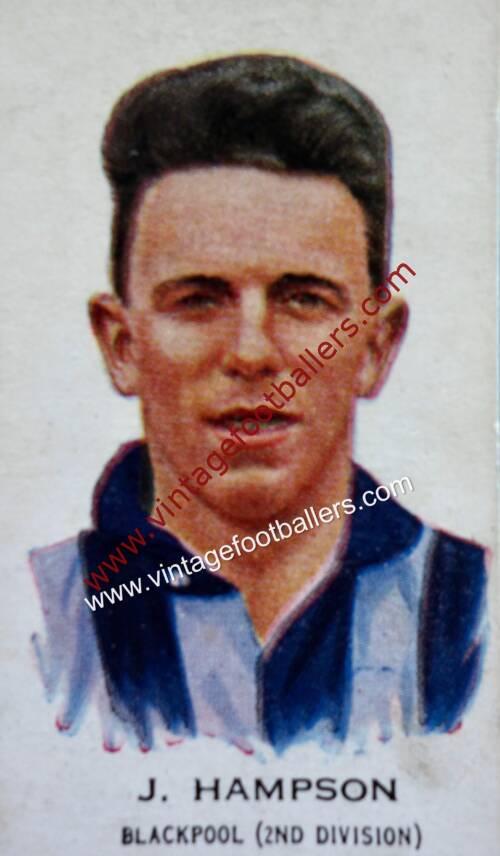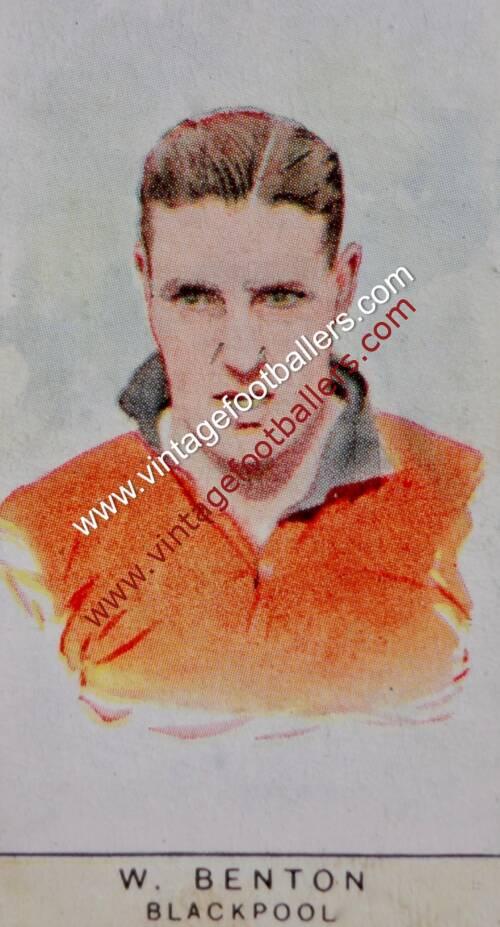Please choose your photo size from the drop down menu below.
If you wish your photo to be framed please select Yes.
Note: 16″x 20″not available in a frame.
Images can also be added to accessories. To order please follow these links
£8.95 – £49.95
In stock
Please choose your photo size from the drop down menu below.
If you wish your photo to be framed please select Yes.
Note: 16″x 20″not available in a frame.
Images can also be added to accessories. To order please follow these links
Much could be and has been written about Hanley, Stoke-on-Trent born outside right Stanley Matthews, a lot more than I intend to write here about his incredible and incredibly lengthy career. Rightly regarded as one of the greatest players of the British game, he is the only player to have been knighted while still playing football, as well as being the first winner of both the European Footballer of the Year and the Football Writers’ Association Footballer of the Year awards. Matthews’ nicknames included “The Wizard of the Dribble” and “The Magician”.
Matthews played for England Schoolboys against Wales in 1929, in front of around 20,000 spectators at Dean Court, Bournemouth and began his football career with Stoke St Peter’s in 1930. Signing for Second Division Stoke City as an amateur on his 15th birthday in February 1930, he turned professional two years later on his 17th birthday and made his Football League debut at Bury in March 1932. He played 15 matches as The Potters won the Second Division Championship in 1932-33. He was a near ever present for the rest of the 1930’s with Stoke until the interruption of the Second World War, missing only 2 matches as they finished 4th in the League Championship in 1935-36.
He was first capped for England in September 1934, scoring in a 4-0 win against Wales at Ninian Park, Cardiff, breaking Nevil Cobbold’s 57-year old record of being the youngest player to score for England, and his England career spanned an incredible 23 years, including scoring in the famous “Nazi Salute” 6-3 victory over Germany in Berlin in May 1938. His last appearance of 54 England caps coming in a win over Denmark in Copenhagen in May 1957 when already 42 years old, and is the oldest player to play for England (42 years and 104 days). He played for England in both the 1950 and 1954 World Cup Finals, scoring 11 goals for his country, his last goal against Northern Ireland in October 1956 makes him also England’s oldest ever goalscorer, winning nine British Home Championship titles with England. He also played for England B in 1948, and scored twice in 13 appearances for The Football League.
Matthews played for Stoke City until the outbreak of War, and during the War he played for Rangers in March 1940 (and June 1941), Aidrieonians in April 1940, Wrexham in December 1940. and Nottingham Forest in February 1941. He then played for Blackpool for the 1941-42 season, and Stoke for the following seasons, as well as guesting for Greenock Morton in March 1943. He guested for Arsenal in January 1945, and played for them in another match against Dynamo Moscow in November that year. Throughout the War, he represented the RAF.
After the War he returned to Stoke City and helped them finish fourth in the League Championship in 1946-47, finishing just two points shy of champions Liverpool after losing to Sheffield United on the final day of the season. He left Stoke aged 32 in May 1947, signing for Blackpool for £11,500 immediately after a Great Britain versus Rest of Europe match in Glasgow, and he spent 14 years with Blackpool, where, after being on the losing side in the 1948 and 1951 FA Cup Finals, he helped Blackpool to win the Cup with a formidable personal performance in the “Matthews Final” of 1953 in a titanic 4-3 victory over Bolton Wanderers at Wembley.
After 18 goals in 430 appearances for Blackpool, he returned to Stoke City for £3,500 in October 1961 aged 46, nearly 30 years after first signing professional for them, and helped Stoke to win the Second Division Championship in 1962-63, playing 31 times in the campaign. Matthews kept fit enough to play at the top level until he was 50 years old. Matthews is also the oldest player ever to play in England’s top flight (50 years and 5 days) when he made his final Stoke City appearance in a 3-1 win against Fulham in February 1965, by when across his two spells he had scored 62 goals in 358 appearances for The Potters.
Stoke City arranged a testimonial match in honour of Matthews played at the Victoria Ground on 28th April 1965, by which time Matthews had decided to retire as a player, and the pre-match entertainment consisted of another match of two veteran teams featuring many legends of the game. Harry Johnston led out a team consisting of Bert Trautmann, Tim Ward, George Hardwick, Jimmy Hill, Neil Franklin, Don Revie, Stan Mortensen, Nat Lofthouse, Jimmy Hagan, Tom Finney and Frank Bowyer(reserve). Walley Barnes led out an opposing team consisting of Jimmy O’Neill, Jimmy Scoular, Danny Blanchflower, Jimmy Dickinson, Hughie Kelly, Bill McGarry, Jackie Mudie, Jackie Milburn, Jock Dodds, Ken Barnes, and Arthur Rowley (reserve).
In the main game itself, two teams of legends were formed, a Stan’s XI (consisting of Football League players) and an International XI. The International side won 6-4, and Matthews was carried shoulder-high from the field at full time by Puskás and Yashin.
There followed an unsuccessful stint as Port Vale’s general manager between 1965 alongside good friend Jackie Mudie as manager, and after Mudie’s resignation he became manager in May 1967 but stepped down in May 1968, following which he travelled around the world, coaching enthusiastic amateurs. The most notable of his coaching experiences came in 1975 in South Africa, where in spite of the harsh apartheid laws of the time he established an all-black team in Soweto known as “Stan’s Men”. He played his final game of football for an England Veterans XI against a Brazil Veterans XI in Brazil in 1985 at the age of 70; the English lost 6-1 to the likes of Amarildo, Tostão, and Jairzinho.
He was voted Football Writers’ Association Footballer of the Year in 1947-48 and 1962-63and won European Footballer of the Year in 1955-56. He received the CBE in 1957 and was knighted in 1965. In February 1956 he was the second person to appear on This Is Your Life. He was also an inaugural inductee to the English Football Hall of Fame in 2002 to honour his contribution to the English game, two years after his death aged 85 in February 2000.
| Weight | N/A |
|---|
